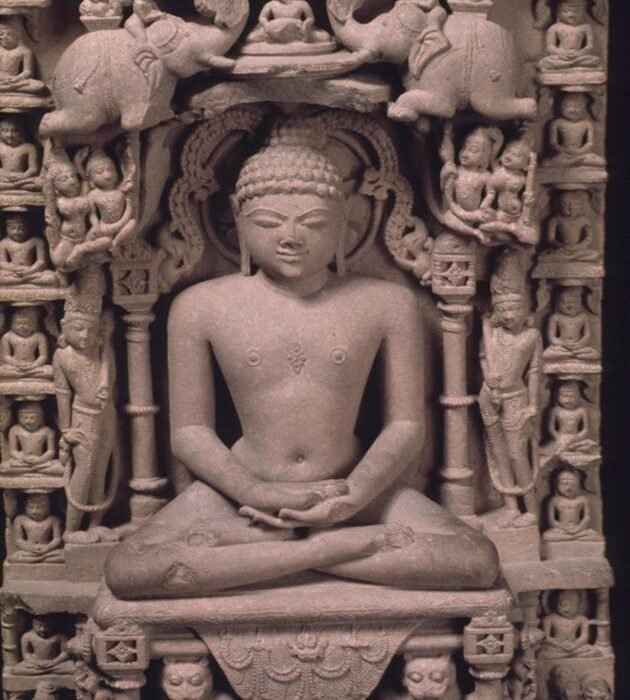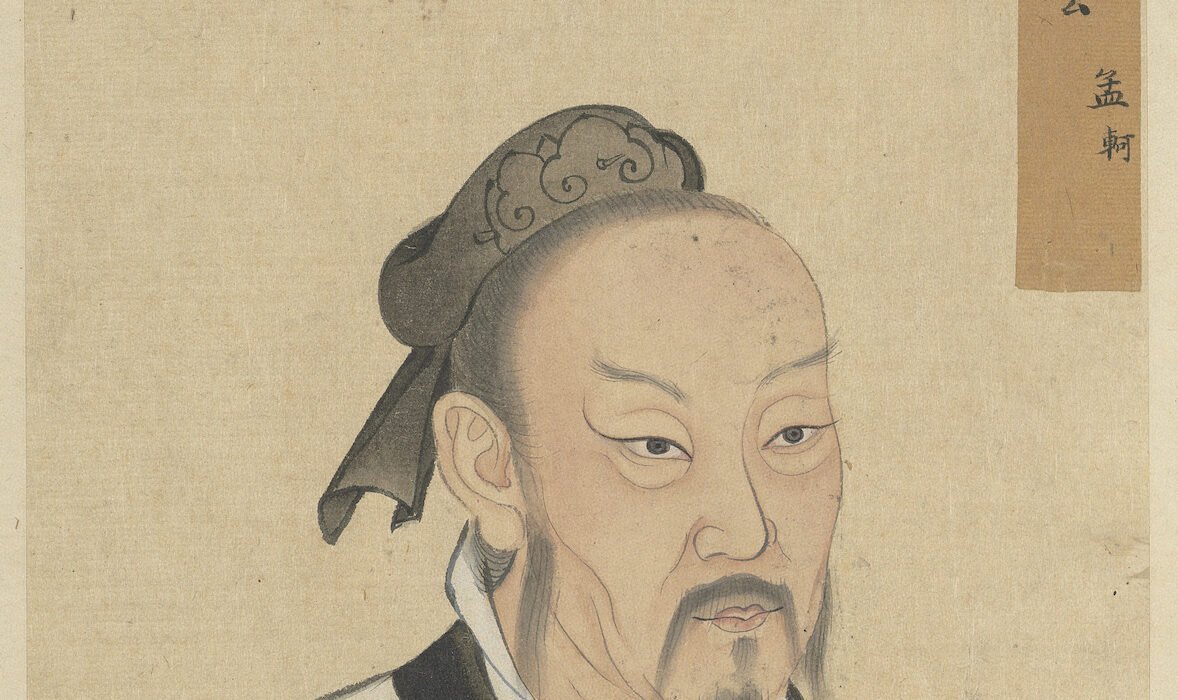Aristotle (384-322 BCE) was an ancient Greek philosopher and polymath who made enduring contributions to many fields, including philosophy, science, logic, and ethics. A student of Plato and teacher of Alexander the Great, Aristotle’s work laid the groundwork for Western philosophy and science. His writings cover a broad range of subjects, from metaphysics and epistemology to biology and ethics. In Nicomachean Ethics, he explores the nature of virtue and the path to a good life, while in Politics, he examines different forms of governance and the role of the state. Aristotle’s method of systematic observation and classification in natural sciences influenced scientific inquiry for centuries. His establishment of formal logic, particularly through the development of syllogistic reasoning, also had a profound impact on subsequent intellectual thought. Aristotle’s ideas remain central to various disciplines, reflecting his profound influence on Western intellectual tradition.
Early Life and Education
Aristotle was born in 384 BCE in the small town of Stagira, located on the northern coast of Greece in the region of Macedon. His father, Nicomachus, was a prominent physician and served as the court doctor to King Amyntas III of Macedon. This close connection to the Macedonian court had a significant impact on Aristotle’s life, shaping his early education and later influencing his role as a tutor to Alexander the Great. Aristotle’s mother, Phaestis, also came from a well-established family, though little is known about her. Nicomachus’ profession as a physician likely exposed Aristotle to the scientific study of the natural world from a young age, which would later become a major focus of his intellectual pursuits.
Aristotle’s early education was likely typical of the Greek elite, involving the study of poetry, philosophy, rhetoric, and physical training. However, his father’s death when Aristotle was still a boy led to a shift in his upbringing. After Nicomachus’ death, Aristotle was sent to Athens, where he enrolled in Plato’s Academy at the age of seventeen. Athens was the intellectual hub of the Greek world, and the Academy, founded by Plato, was the most prestigious educational institution of the time. Aristotle’s arrival at the Academy marked the beginning of a twenty-year association with the institution and its founder.
At the Academy, Aristotle was exposed to a wide range of philosophical ideas and methods. Plato, who was deeply influenced by the teachings of Socrates, emphasized the importance of abstract reasoning and the existence of ideal forms. Aristotle, however, began to develop his own philosophical views, which often diverged from those of his teacher. While Plato focused on the world of forms, Aristotle was more concerned with the observable world and the empirical study of nature. This fundamental difference in approach would later become a defining characteristic of Aristotelian philosophy.
During his time at the Academy, Aristotle gained a reputation for his sharp intellect and analytical skills. He engaged in debates with other students and philosophers, refining his ideas and expanding his knowledge across various disciplines. Although he remained a loyal student of Plato, Aristotle began to question some of the core tenets of Platonic thought. For example, he rejected Plato’s theory of forms, arguing that the essence of a thing could not exist separately from the thing itself. This departure from Platonic idealism marked the beginning of Aristotle’s development of a more grounded and empirical approach to philosophy.
Aristotle’s years at the Academy were crucial in shaping his intellectual trajectory. Although he was heavily influenced by Plato, Aristotle’s independent thinking and commitment to empirical observation set him on a path that would ultimately lead to the creation of his own philosophical system. His time at the Academy provided him with a strong foundation in philosophy, but it also sowed the seeds of his future divergence from his teacher’s ideas. As he moved beyond the confines of the Academy, Aristotle would go on to develop a comprehensive and systematic approach to understanding the world, one that emphasized the importance of evidence, observation, and logic.
Aristotle’s Philosophical Contributions and Theories
After Plato’s death in 347 BCE, Aristotle left Athens and the Academy, as leadership of the institution passed to Plato’s nephew, Speusippus. Aristotle’s departure marked a significant turning point in his intellectual development. He spent the next several years traveling and studying in various cities across the Greek world, including Assos, a city in Asia Minor, and Mytilene, on the island of Lesbos. During this period, Aristotle began to refine his own philosophical ideas, laying the groundwork for many of his most important contributions to Western thought.
One of Aristotle’s most significant contributions to philosophy is his theory of causality, which he articulated in his work “Metaphysics.” Aristotle identified four types of causes that explain why things happen: material, formal, efficient, and final causes. The material cause refers to the substance out of which something is made; the formal cause is the design or structure of the thing; the efficient cause is the agent or force that brings the thing into being; and the final cause is the purpose or function that the thing is meant to serve. This framework allowed Aristotle to analyze and explain the natural world in a comprehensive and systematic way, influencing subsequent developments in both philosophy and science.
In addition to his theory of causality, Aristotle made groundbreaking contributions to the field of logic. He is often credited with founding formal logic through his development of the syllogism, a form of reasoning in which a conclusion is drawn from two premises. For example, in the syllogism “All men are mortal. Socrates is a man. Therefore, Socrates is mortal,” the conclusion logically follows from the premises. Aristotle’s work on logic, particularly as outlined in his “Organon,” provided the foundation for deductive reasoning, which became a cornerstone of Western philosophy and the scientific method.
Aristotle’s ethical theory, known as virtue ethics, also represents a major departure from the ethical frameworks of his predecessors. Unlike other ethical systems that focus on rules or consequences, Aristotle’s approach emphasizes the cultivation of virtuous character traits. He argued that living a virtuous life leads to eudaimonia, a Greek term often translated as “flourishing” or “happiness.” According to Aristotle, virtue lies in finding the mean between extremes; for instance, courage is the mean between recklessness and cowardice. By practicing moderation and developing good habits, individuals can achieve a state of moral excellence that enables them to lead fulfilling and meaningful lives.
In his exploration of politics, Aristotle sought to understand the nature of the state and the role it plays in promoting the common good. In his work “Politics,” Aristotle identified three just forms of government: monarchy, aristocracy, and polity, each of which could become corrupt if those in power governed for their own interests rather than the well-being of the community. Aristotle’s ideal government was a polity, a balanced constitution that combined elements of democracy and oligarchy, with a strong middle class acting as a stabilizing force. This emphasis on balance and moderation in governance reflects Aristotle’s broader ethical views and underscores his belief in the importance of achieving harmony and stability in society.
Aristotle’s philosophical contributions are vast and varied, encompassing logic, ethics, metaphysics, politics, and natural science. His work laid the groundwork for many of the disciplines that continue to be studied today, and his ideas have had a lasting impact on the development of Western thought. By emphasizing empirical observation, logical reasoning, and the importance of virtue, Aristotle created a philosophical system that continues to influence contemporary discussions in philosophy, science, and politics.
Aristotle’s Work in Biology and the Natural Sciences
Aristotle’s interest in the natural world extended far beyond the realm of philosophy and into the study of biology and the natural sciences. He was one of the first thinkers to approach the study of living organisms in a systematic and empirical manner, laying the foundation for the field of biology. Aristotle’s approach to the natural sciences was grounded in careful observation and the collection of empirical data, which set him apart from many of his contemporaries who relied more heavily on abstract reasoning and speculation.
During his time on the island of Lesbos, Aristotle conducted extensive research on the marine life of the surrounding waters. He meticulously observed and documented the behavior, anatomy, and reproductive processes of various species, including fish, mollusks, and crustaceans. Aristotle’s observations were detailed and methodical, and he took great care to classify the organisms he studied based on their characteristics and functions. This empirical approach to the study of living organisms was revolutionary for its time and established Aristotle as a pioneering figure in the field of biology.
One of Aristotle’s most important contributions to biology was his classification system, known as the “Scala Naturae” or “Great Chain of Being.” In this system, Aristotle arranged living organisms in a hierarchical order based on their complexity, with inanimate objects and simple organisms at the bottom and more complex beings, such as humans, at the top. Although the Scala Naturae is now considered outdated, it represented one of the earliest attempts to organize and categorize the diversity of life in a systematic way. Aristotle’s work in this area laid the groundwork for later developments in taxonomy and the study of biodiversity.
Aristotle’s interest in biology was not limited to classification; he also made significant contributions to the study of anatomy and physiology. He conducted dissections of various animals, carefully documenting their internal structures and the functions of their organs. Aristotle’s observations led him to develop theories about reproduction, growth, and development that would influence biological thought for centuries. For example, he proposed that organisms could be classified based on their modes of reproduction, such as oviparous (egg-laying) and viviparous (live-bearing) animals. Aristotle’s detailed studies of animal anatomy and physiology provided valuable insights into the functioning of living organisms, many of which were not challenged until the advent of modern science.
In addition to his work on animals, Aristotle also made significant contributions to the study of plant life. Although his botanical studies were not as extensive as his work on animals, he made several important observations about plant structure, growth, and reproduction. Aristotle’s writings on plants, particularly his observations on the process of germination and the development of seeds, laid the groundwork for future developments in botany. His work in this area demonstrated his commitment to understanding the natural world in all its complexity and diversity.
Aristotle’s approach to the natural sciences was characterized by his commitment to empirical observation and logical reasoning. He believed that knowledge of the natural world could only be gained through careful study and experimentation, rather than relying on abstract theories or divine explanations. This emphasis on observation and evidence-based reasoning became a hallmark of the scientific method, influencing generations of scientists and philosophers.
Aristotle’s detailed observations and classifications had a lasting impact on the study of natural history. His works, such as “History of Animals,” “On the Parts of Animals,” and “On the Generation of Animals,” provided a comprehensive account of animal biology. These texts were based on his own observations and dissections, as well as the reports of other naturalists. In “History of Animals,” for instance, Aristotle meticulously described the physical characteristics, behaviors, and habitats of various species. His comparative approach allowed him to identify patterns and make generalizations about the animal kingdom.
One of Aristotle’s significant achievements was his study of animal embryology. In “On the Generation of Animals,” he explored the development of embryos and the process of reproduction. Aristotle proposed that the male and female contributions to reproduction were analogous to the combination of form and matter. Although his theories on reproduction were not entirely accurate by modern standards, they represented an important step in the development of biological science. Aristotle’s ideas about the role of the male and female in reproduction were discussed and refined by later scholars, contributing to a deeper understanding of developmental biology.
Aristotle’s observations also extended to the behavioral aspects of animals. He was one of the first to document animal instincts and social behaviors, such as mating rituals, parental care, and social hierarchies. His studies provided valuable insights into the lives of animals and their interactions with their environments. By focusing on behavior as well as anatomy, Aristotle contributed to a more holistic understanding of living organisms.
In addition to his work on animals, Aristotle’s contributions to botany included observations on plant reproduction, growth, and classification. He categorized plants based on their reproductive methods, distinguishing between those that produced seeds and those that did not. Although his botanical studies were less comprehensive than his work on animals, they laid the groundwork for future research in plant biology.
Aristotle’s empirical approach to the natural sciences had a profound influence on subsequent generations of scientists. His method of careful observation and classification became a model for future naturalists, including his student Theophrastus, who furthered Aristotle’s work on plants and is often considered the “father of botany.” Aristotle’s emphasis on systematic observation and documentation of natural phenomena continued to shape scientific inquiry throughout the Middle Ages and the Renaissance.
Although some of Aristotle’s specific scientific theories have been revised or disproven by modern science, his contributions to the field of natural history remain significant. His systematic approach to studying and categorizing the natural world provided a foundation for future research and exploration. Aristotle’s impact on biology and the natural sciences extends beyond his lifetime, influencing the development of scientific methodology and contributing to the advancement of knowledge about the living world.
Aristotle’s Political Philosophy
Aristotle’s contributions to political philosophy are as influential as his work in other areas of study. His exploration of political theory, particularly in his work “Politics,” addresses fundamental questions about the nature of government, the role of citizens, and the pursuit of the common good. Aristotle’s political philosophy reflects his broader ethical views and provides a framework for understanding the principles of governance and justice.
In “Politics,” Aristotle examines different forms of government, including monarchy, aristocracy, and polity. He identifies these as the three just forms of government, each characterized by rulers who govern for the benefit of the whole community rather than their own interests. According to Aristotle, monarchy is rule by a single virtuous ruler, aristocracy is rule by a group of virtuous individuals, and polity is a mixed form of government that combines elements of democracy and oligarchy. Each of these forms has the potential to become corrupt if the rulers prioritize their own gain over the welfare of the state.
Aristotle’s ideal government is the polity, which he sees as a balanced and stable form of governance. In a polity, the middle class plays a crucial role in maintaining stability and preventing the extremes of wealth and poverty from leading to social unrest. Aristotle argues that a strong middle class can serve as a moderating force, promoting fairness and preventing the concentration of power in the hands of a few wealthy individuals or the masses.
Aristotle’s analysis of political institutions and their functions is also noteworthy. He examines various forms of political organization, including city-states (poleis) and their constitutions. Aristotle’s comparative approach allows him to identify the strengths and weaknesses of different political systems and to propose improvements. His observations on the nature of citizenship, the role of law, and the importance of civic participation contribute to a deeper understanding of political theory and practice.
In addition to his theoretical work, Aristotle’s political philosophy has practical implications for governance. His emphasis on the importance of the common good and the role of virtue in political leadership reflects his broader ethical views. Aristotle believes that the purpose of government is to promote the well-being of its citizens and to create conditions for the pursuit of a good life. This perspective underscores the idea that political institutions should be designed to foster justice, virtue, and human flourishing.
Aristotle’s political thought has had a lasting impact on the development of Western political theory. His ideas about the nature of government, the role of the middle class, and the pursuit of the common good have influenced subsequent political philosophers and theorists. The concept of the mixed government, or polity, has been particularly influential, shaping the development of modern democratic and republican systems.
Throughout history, Aristotle’s political philosophy has been studied and debated by scholars, politicians, and policymakers. His ideas have been integrated into various political systems and continue to inform discussions about governance and justice. Aristotle’s contributions to political theory remain relevant in contemporary debates about the nature of democracy, the role of the state, and the principles of political ethics.
Aristotle’s Influence on Later Philosophers and Thinkers
Aristotle’s influence on later philosophers and thinkers is profound and far-reaching. His ideas have shaped the development of Western philosophy, science, and political theory, leaving a lasting legacy that continues to be felt across various fields of study. From ancient times to the present day, Aristotle’s work has inspired and challenged scholars, contributing to the evolution of intellectual thought.
One of the most significant ways in which Aristotle’s influence has been felt is through the work of his students and successors. His most famous student, Alexander the Great, carried Aristotle’s teachings with him throughout his conquests, spreading Greek culture and ideas across a vast empire. Aristotle’s philosophy also had a direct impact on his student Theophrastus, who continued and expanded upon Aristotle’s work in botany and natural history. Theophrastus is often considered the “father of botany” due to his contributions to the classification and study of plants.
Aristotle’s influence extended well beyond his immediate circle of students. During the Middle Ages, his work was integrated into the scholastic tradition, particularly through the efforts of philosophers such as Thomas Aquinas. Aquinas, a leading figure in medieval scholasticism, sought to reconcile Aristotelian philosophy with Christian theology. His interpretation of Aristotle’s ideas on ethics, politics, and metaphysics played a crucial role in shaping medieval thought and Christian doctrine. Aquinas’ integration of Aristotle’s philosophy into Christian theology provided a framework for understanding religious and philosophical concepts in a way that bridged the gap between faith and reason.
The Renaissance saw a renewed interest in Aristotle’s work, as scholars and thinkers sought to recover and build upon the classical knowledge of antiquity. Renaissance humanists such as Erasmus and Leonardo da Vinci drew upon Aristotle’s ideas in their own work, contributing to a revival of classical learning and the advancement of various fields of study. The rediscovery of Aristotle’s texts and the dissemination of his ideas during this period helped to shape the intellectual climate of the Renaissance and fostered a new era of scientific and philosophical inquiry.
Aristotle’s impact on modern philosophy and science is also notable. His work laid the foundation for many of the disciplines that continue to be studied today, including logic, ethics, metaphysics, and political theory. Philosophers such as Immanuel Kant and G.W.F. Hegel engaged with Aristotle’s ideas, either building upon them or critiquing them as part of their own philosophical systems. Kant’s exploration of metaphysics and ethics, for example, was influenced by Aristotle’s concept of causality and his emphasis on moral virtue.
In addition to his influence on philosophy, Aristotle’s contributions to science and natural history have had a lasting impact on the development of scientific methodology. His emphasis on empirical observation and systematic classification provided a model for future scientists and naturalists. The principles of Aristotle’s logic and reasoning continue to underpin various branches of modern science, including biology, physics, and social sciences.
Overall, Aristotle’s influence on later philosophers and thinkers is a testament to the enduring relevance of his ideas. His work has shaped the course of Western intellectual history and continues to inspire and challenge scholars across a range of disciplines. Aristotle’s contributions to philosophy, science, and political theory have left an indelible mark on the intellectual tradition, making him one of the most important figures in the history of human thought.
Aristotle’s Legacy and Lasting Impact
Aristotle’s legacy extends far beyond his lifetime, leaving an indelible mark on virtually every field of human inquiry. His works have been studied, debated, and built upon by countless scholars, philosophers, and scientists, making him one of the most influential figures in Western intellectual history. The scope of Aristotle’s contributions is so vast that it is difficult to encapsulate his lasting impact in a single narrative. Nevertheless, certain aspects of his legacy stand out as particularly significant.
One of the most enduring aspects of Aristotle’s legacy is his approach to knowledge and inquiry. Aristotle believed that understanding the natural world required systematic observation, logical reasoning, and empirical evidence. This methodological approach laid the groundwork for the development of the scientific method, which emphasizes observation, experimentation, and the formulation of theories based on evidence. His commitment to empirical research and his insistence on the importance of evidence-based reasoning continue to influence scientific practices and philosophical inquiries.
Aristotle’s contributions to logic, particularly through his development of formal logic and the syllogistic method, have had a profound impact on the field of logic and reasoning. His work in this area established the principles of deductive reasoning, which became a fundamental component of both philosophical argumentation and scientific investigation. The study of Aristotle’s logic continued throughout the medieval period, and his ideas were integrated into various systems of thought, including the scholastic tradition. Modern logic, including formal and symbolic logic, still draws upon Aristotle’s foundational concepts.
In the realm of ethics, Aristotle’s virtue ethics has remained a significant and influential framework. His emphasis on character and the development of virtuous habits as the basis for ethical behavior has influenced contemporary moral philosophy. Modern ethicists continue to engage with Aristotle’s ideas about the mean between extremes, moral virtues, and the concept of eudaimonia (flourishing or happiness). Aristotle’s approach to ethics, which focuses on the cultivation of virtuous character traits rather than strict adherence to moral rules, has inspired various approaches to moral education and ethical decision-making.
Aristotle’s political philosophy, with its emphasis on the role of the middle class and the pursuit of the common good, has had a lasting impact on political theory and practice. His ideas about governance, citizenship, and the nature of justice continue to inform discussions about political institutions and the organization of societies. The concept of the mixed government or polity, which combines elements of democracy and oligarchy, remains relevant in contemporary debates about political systems and the balance of power.
In the field of natural sciences, Aristotle’s contributions to biology and the study of living organisms laid the foundation for future research. His systematic observations and classifications provided a basis for the development of taxonomy and the study of biodiversity. Although some of Aristotle’s specific scientific theories have been revised or superseded by modern science, his methodological approach to studying the natural world remains influential. His work inspired subsequent generations of naturalists and scientists who built upon his observations and expanded the field of biology.
Aristotle’s legacy is also evident in the way his ideas were transmitted and preserved through various historical periods. During the Middle Ages, Aristotle’s works were translated into Arabic and Latin, influencing Islamic and Christian scholars. The transmission of Aristotelian thought through these translations played a crucial role in shaping medieval intellectual traditions. The Renaissance revival of classical knowledge further cemented Aristotle’s influence, as scholars rediscovered and engaged with his works.






